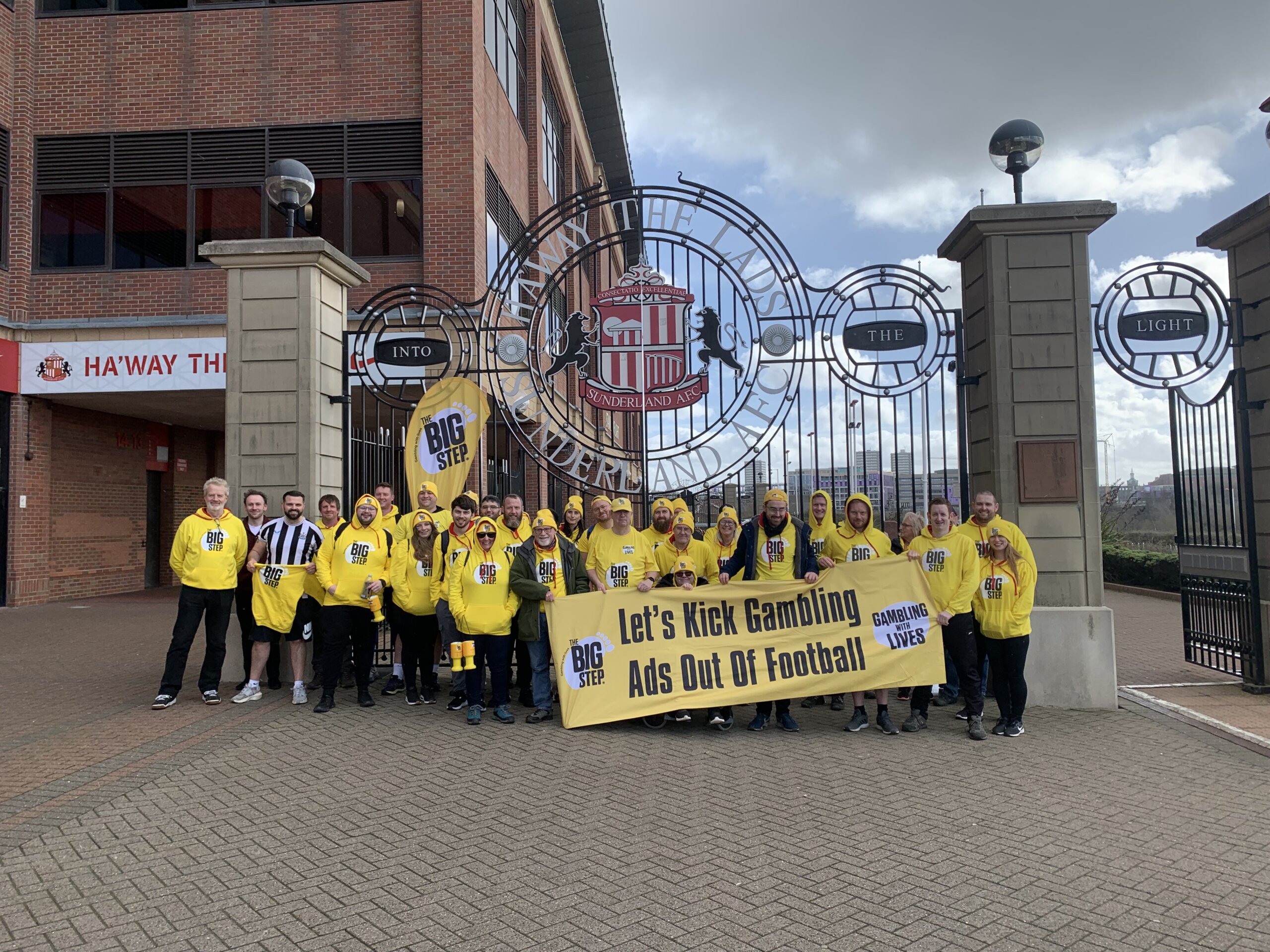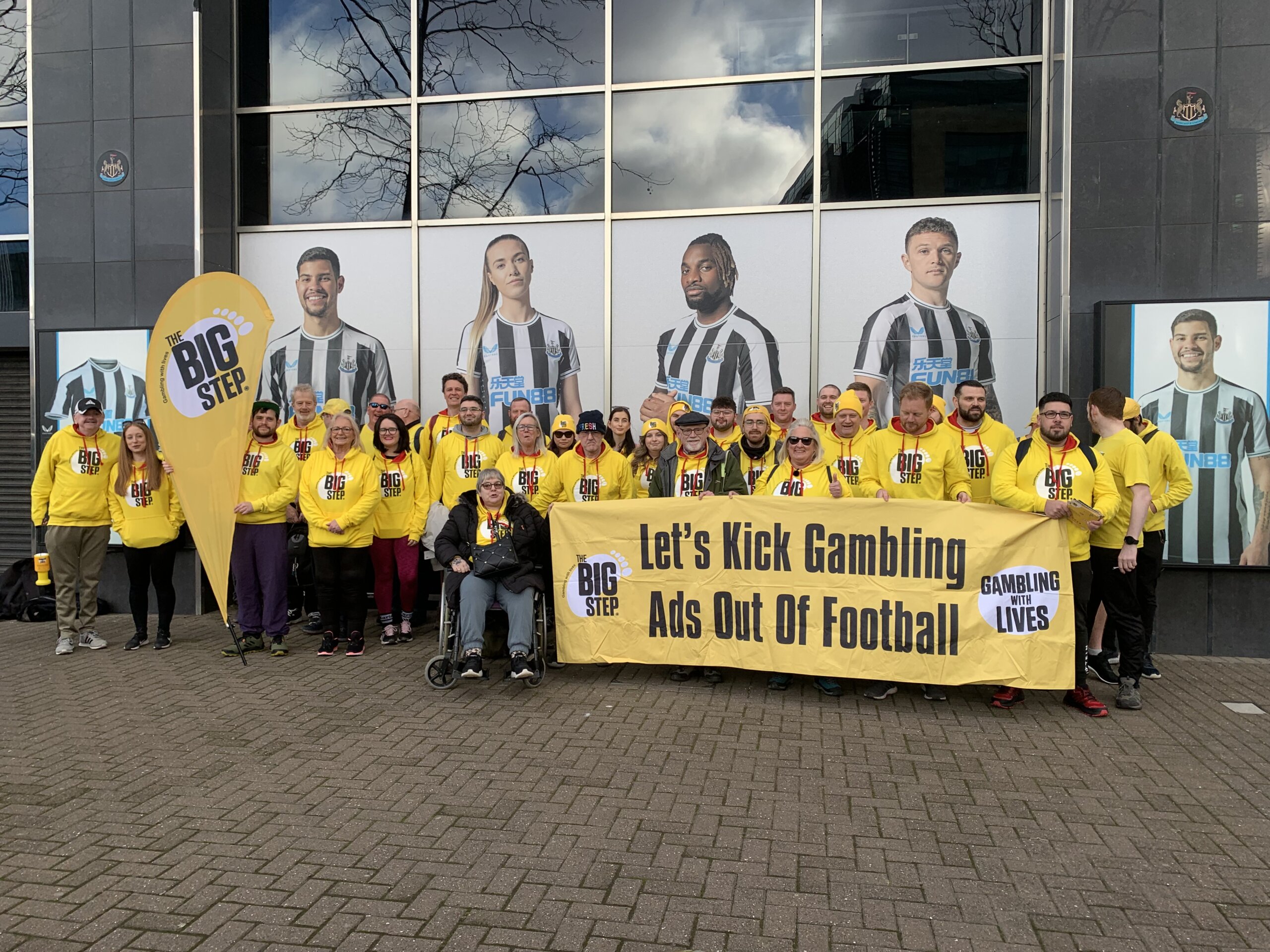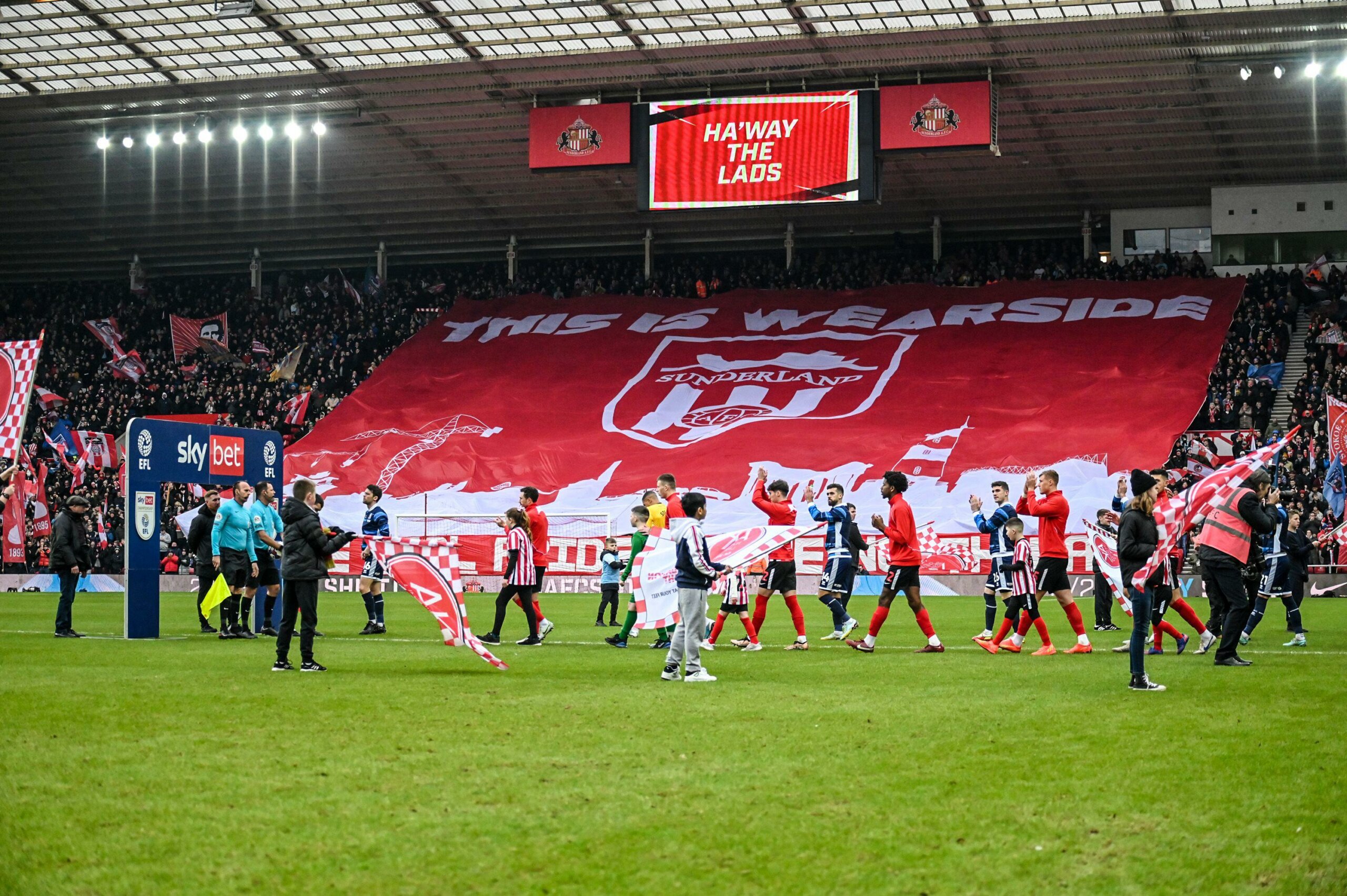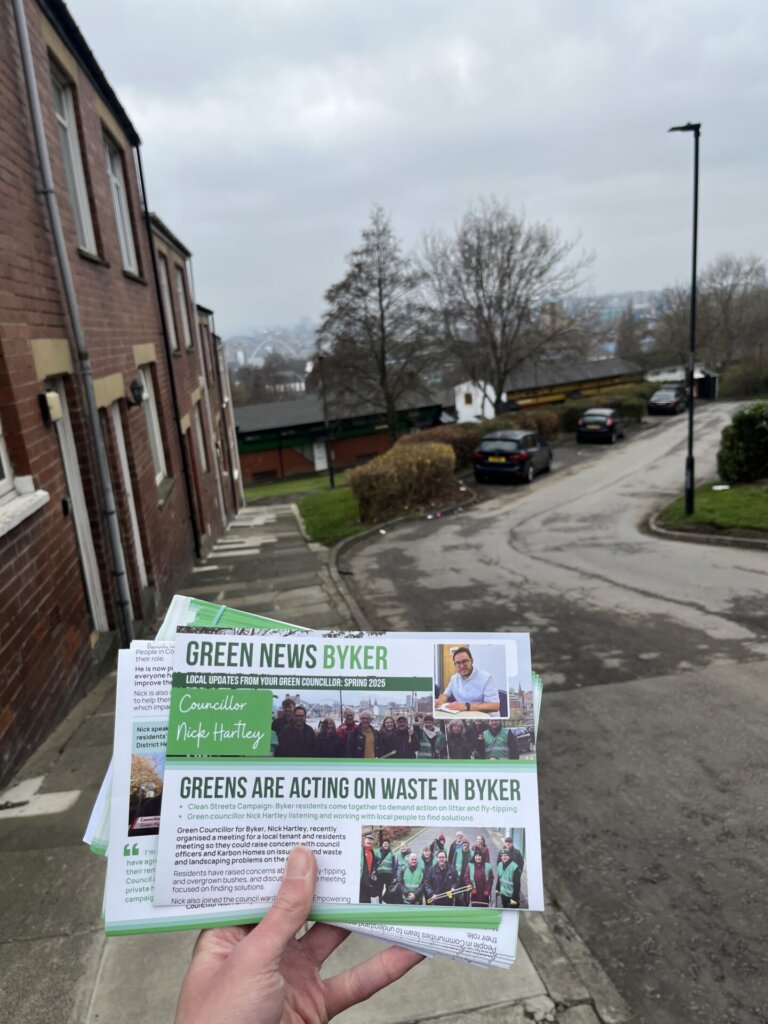Against the odds – the charity campaigning to kick gambling ads out of football
Written by Mitchell Tapner on 31st March 2023
Two rivers, two cities and 45 miles separates the stadiums of North-East rivals Newcastle and Middlesbrough.
But at least one thing links the thousands of fans who visit St James’ Park and the Riverside . . .
The love of a sporting flutter.
And both clubs themselves see no issue in bombarding those supporters with reminders – whether through shirt sponsorship or other means – of the temptation to have a bet.
So while it might seem a little crazy to willingly walk those 45 miles, the “Big Step” sees fighting against the rise of gambling in sport makes it worth every stride.
The charity, which specifically campaigns against gambling ads within football, recently made the walk from St James’ Park to the Riverside Stadium to raise awareness against gambling adverts and sponsorship within football.

Image credit: Mitchell Tapner – Stadium of Light
The trek, which stretched over two days, involved the charity visiting three North East clubs that have gambling shirt sponsorships: Newcastle, Sunderland and Middlesbrough.
That trio are part of a long list of UK clubs with highly visible sponsorships from bookmakers, with eight of the 20 Premier League clubs currently having front-of-shirt deals with gambling companies.

Image Credit: Mitchell Tapner – St James Paek
This is what pushed James Grimes to create the Big Step. James, who experienced 12 years as a gambling addict, created the organised walks – held in aid of the charity Gambling With Lives – in the hope it would potentially highlight the negative impacts the gambling industry has on football.
“As a huge football fan my whole life, I loved the sport, I trusted the sport and I trusted the messages it told me,” said James. “So when my favourite club, players, national team and television broadcaster all of a sudden kept telling me to gamble, I was extremely susceptible at that age and that was my way in.”
With over 400 gambling-related suicides every year in the UK, James and his charity had hoped that their work would have encouraged clubs to interact and back their campaign.
“We’ve heard nothing back from any of the three clubs,” says James.
The charity has had to turn to the Government in an aim to stamp out gambling ads, with their petition to “end gambling advertising and sponsorship in football” gaining over 120,000 signatures.

Stadium of Light – photo credit Alamy
This has seemed to kick the Government into action, with a parliamentary white paper on gambling potentially being by released next month, amid rumours of potential affordability checks and levies on profits seeing the gambling companies being hit hard.
James, however, remains slightly sceptical.
“As it stands, there’s little to no action on advertising and sponsorship – although I think the Government would be missing a huge opportunity to not act on gambling sponsorship, especially how popular that would be and how unhealthy the current situation is.”
But Tom Fleming, who campaigns against gambling advertising for Gambling with Lives, is slightly more optimistic and sees the white paper as a potential for change.
“We see the white paper as the beginning of a process that brings about life-saving reforms – although not the end,” he says. “No matter what it includes, we will keep campaigning for measures that will reduce gambling suicides and gambling harm.”
And when he talks about “harm”, Tom – like James – knows from personal experience what that can mean for a gambling addict.
“My life began to unravel – my relationship, friendships and work life all suffered, and my mental health was really bad. I never lost huge amounts of money – but I felt the worst I’ve ever felt in my life,” he says.
Do gambling companies bring positives as well as negatives?
With gambling companies such as Sky Bet sponsoring the Football League, some fans may argue that they bring more positives than negatives to the game, particularly with many EFL clubs still struggling, post-pandemic.
But James believes the value of the bookies’ financial contribution to the game is actually vastly overestimated.
“I think the gambling industry gives around £40 million a year to the EFL. But compare that to the wage bill for players alone in the Championship last season, which was £900 million.
“So, the amount of money that gambling sponsorship and advertising brings into football is just a drop in the ocean. There are plenty of healthy, sustainable industries that would love to advertise in football and support football, but don’t get a chance because they’re priced out by loads of desperate gambling companies that are competing against each other to put the price up of advertising.”
But while the “Big Step” hopes to highlight those arguments and more, there’s no doubt that banning gambling sponsorship from football will take a mighty leap.






